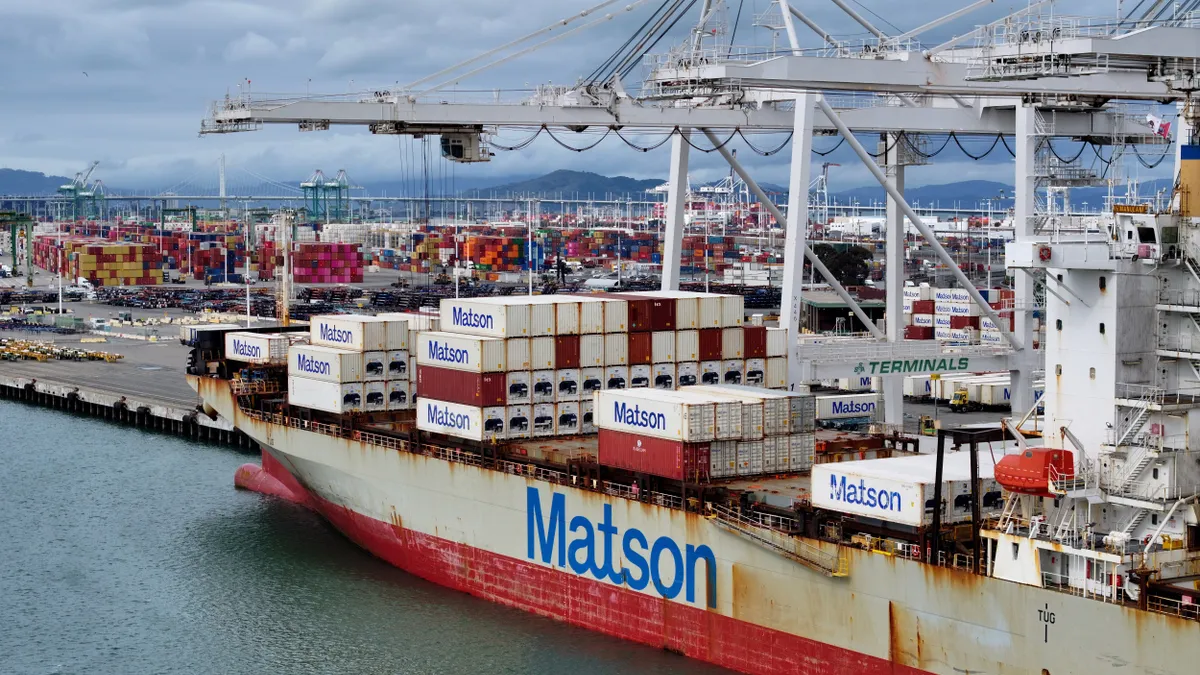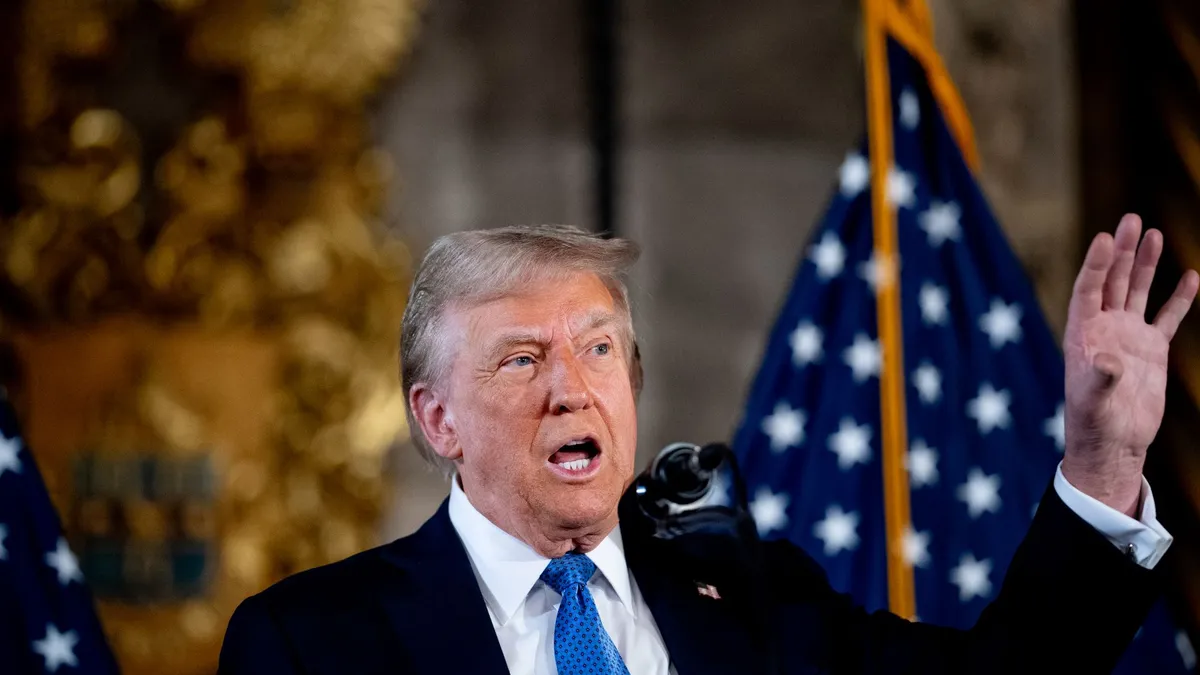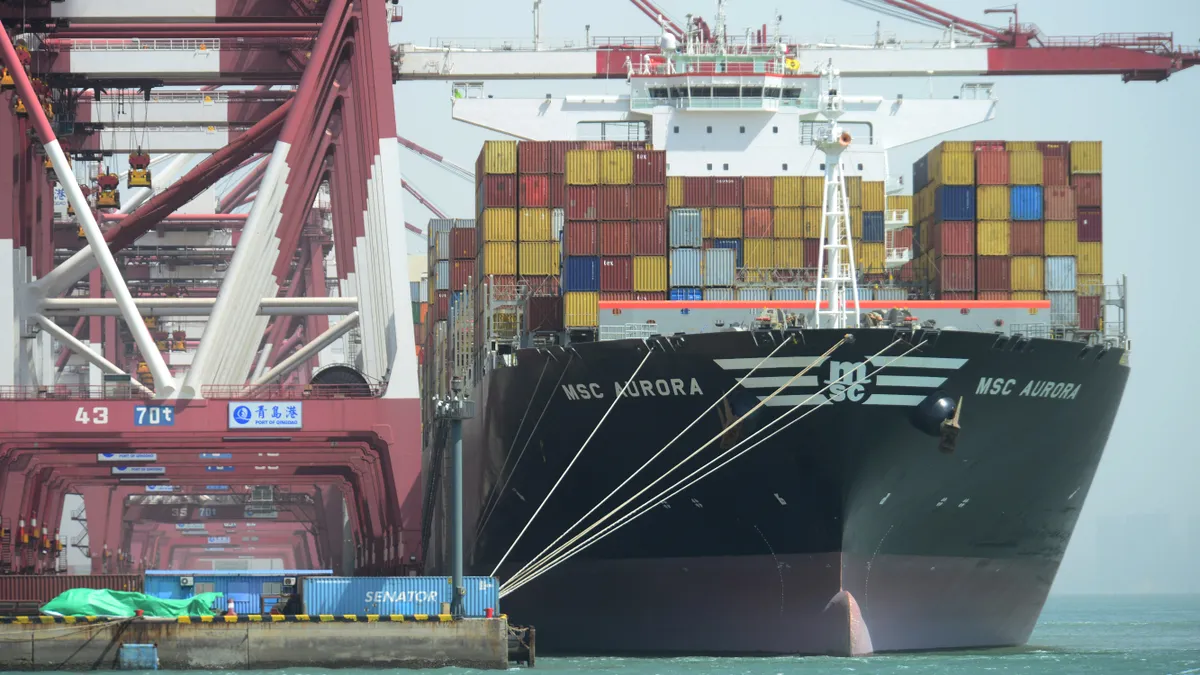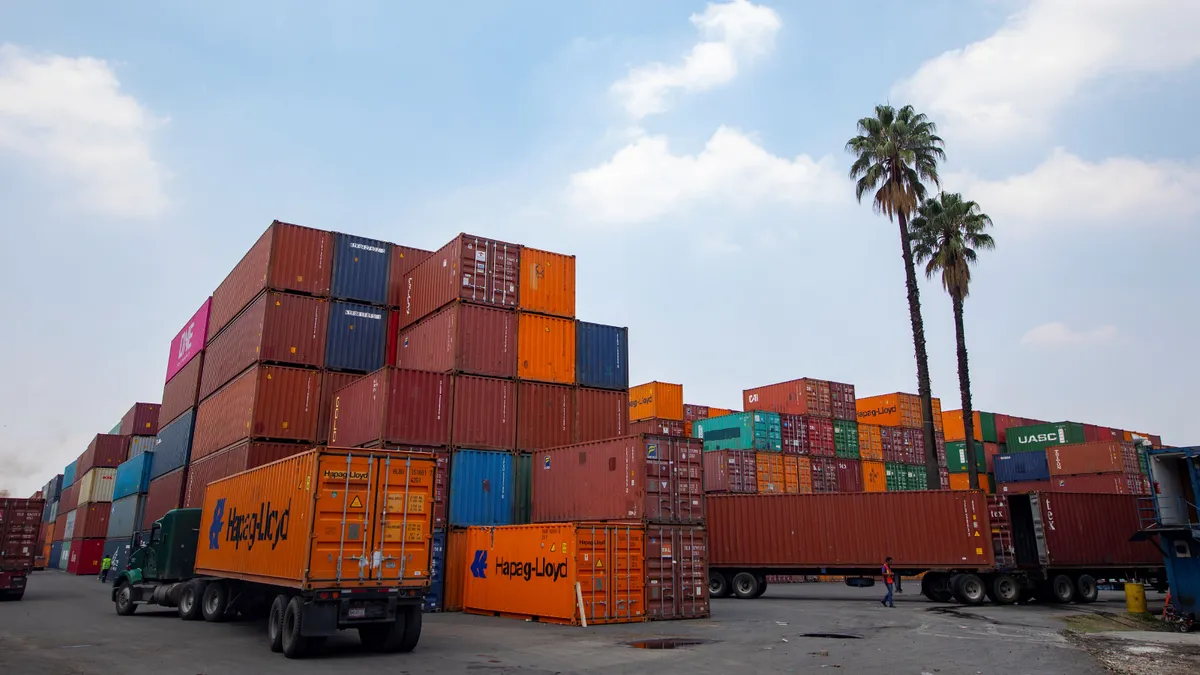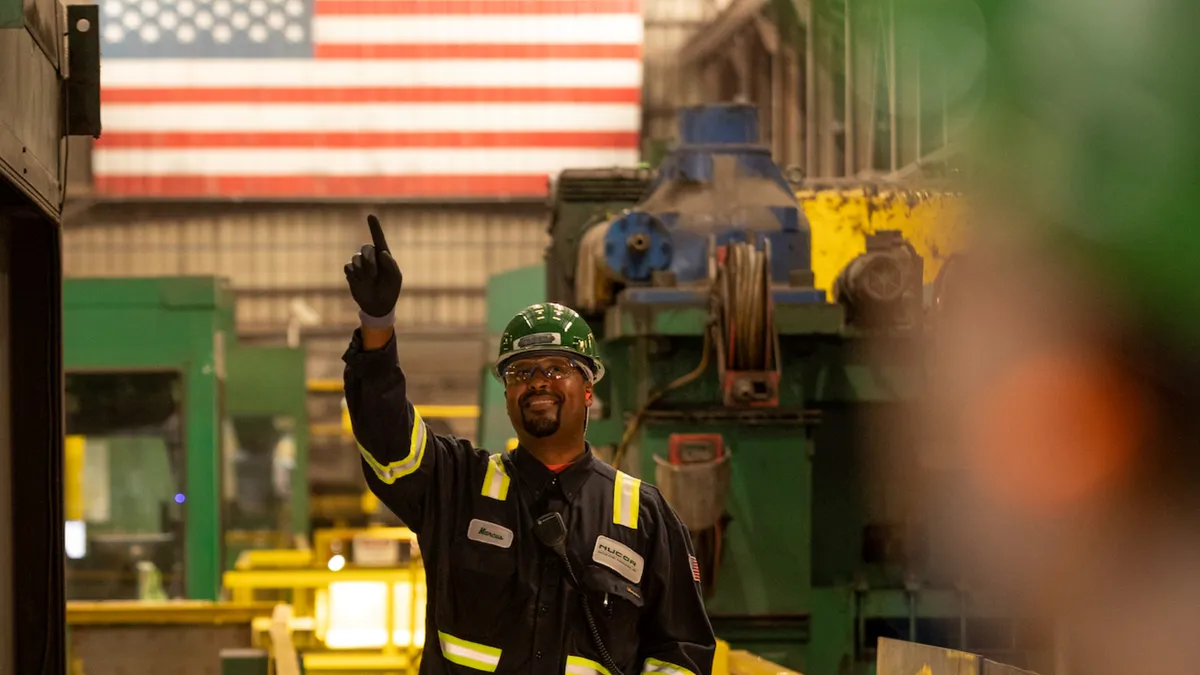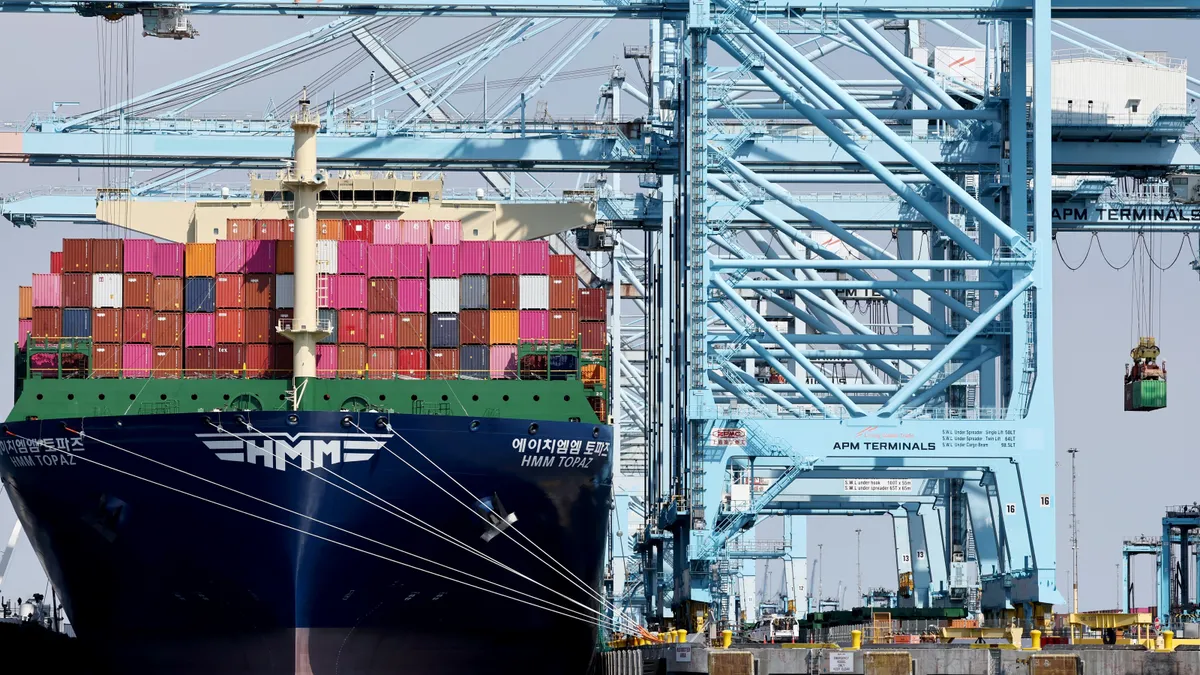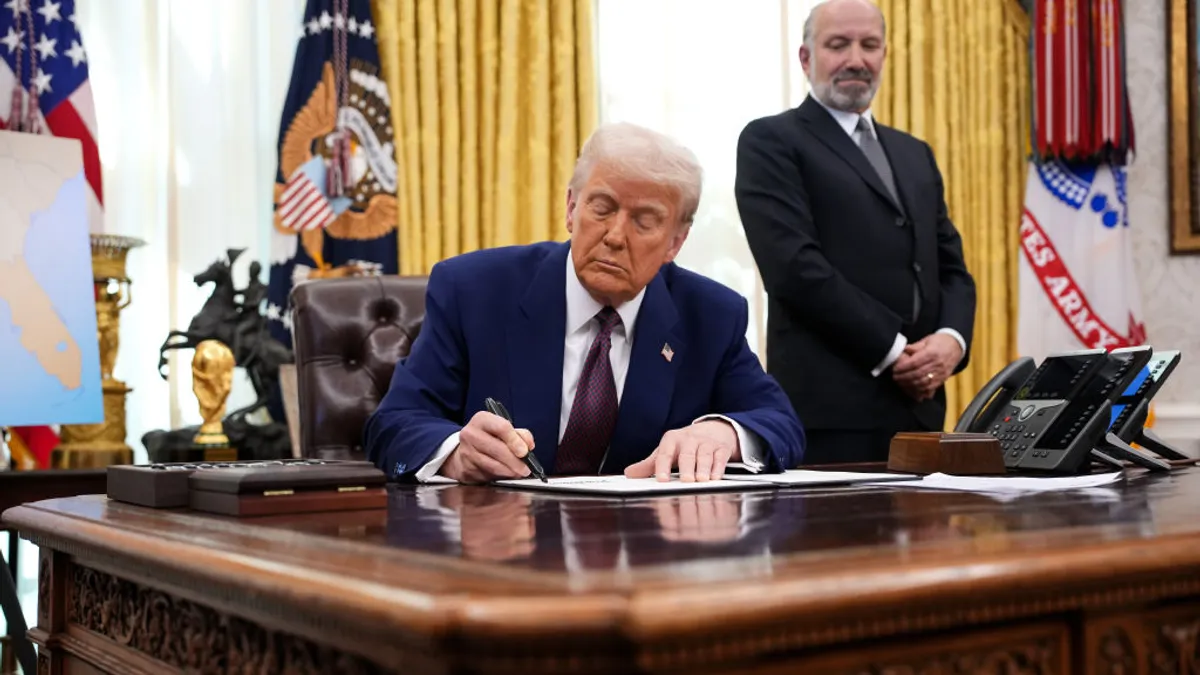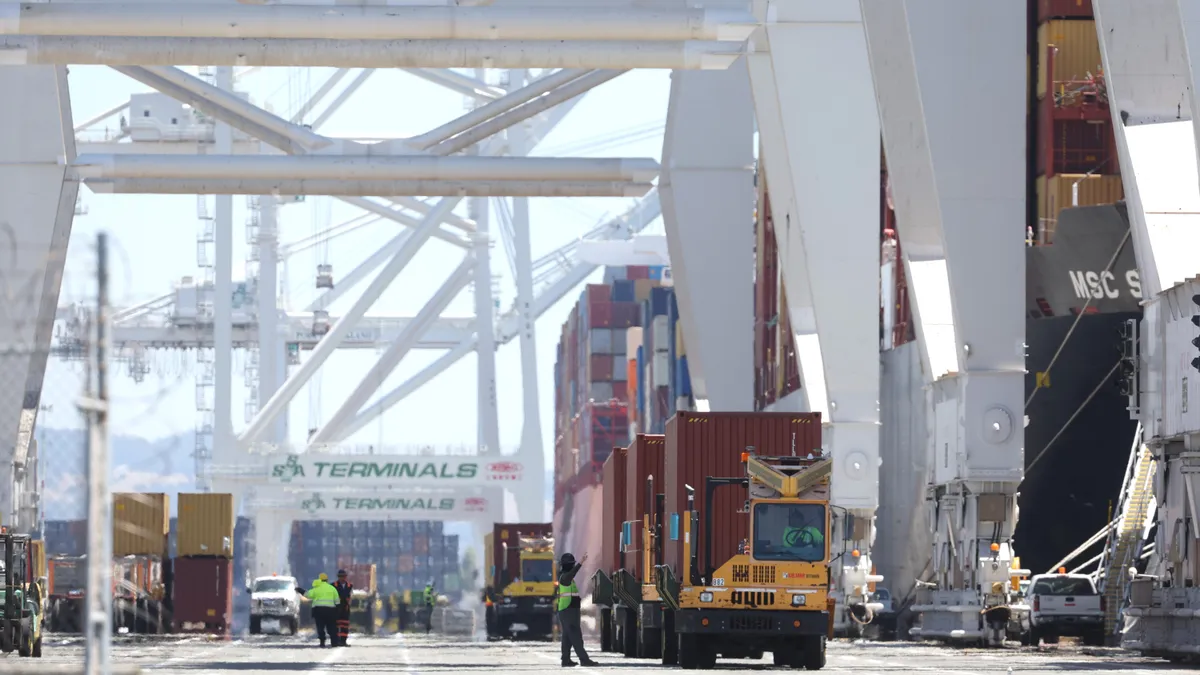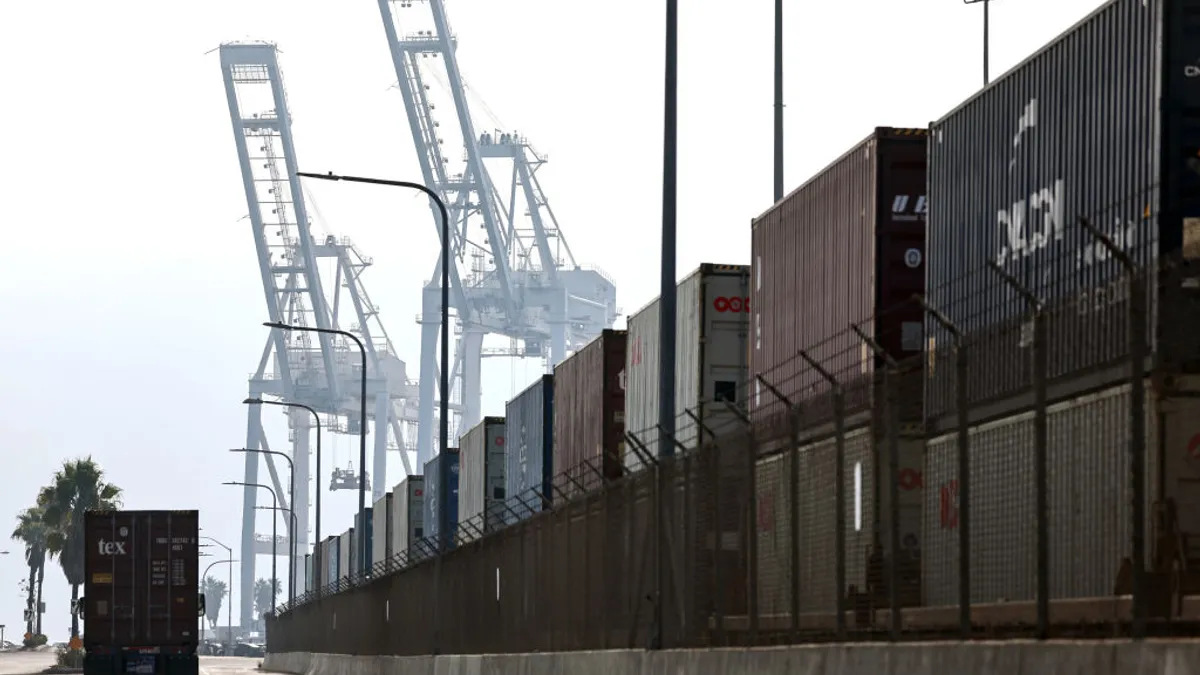Medical device firms are assessing supply chain strategies in response to a flurry of tariffs announced by President Donald Trump in the last two weeks.
Additional levies on imports from China and tariffs on steel and aluminum have already been enacted, while tariffs on products from Mexico and Canada may go into effect on March 4. Trump has also called for reciprocal tariffs, and has directed agencies to report on taxes imposed on U.S. products by early April.
Lynlee Brown, a global trade partner at EY, said reciprocal tariffs could affect the medtech industry as many countries where device firms manufacture maintain relatively high duty rates compared to the U.S.
Supply chain experts have also said that it likely won’t be practical for medtech companies to move their manufacturing sites without knowing how long the tariffs will last.
MedTech Dive spoke with Brown about what other options companies have to mitigate the impact.
This interview has been edited for length and clarity.

MEDTECH DIVE: Of the tariffs Trump has announced on specific countries so far, what do you think will be most impactful to medtech companies?
LYNLEE BROWN: It's really difficult to say across the board, but the China tariffs have been in place now from the first administration. The companies who had significant medtech investments there have figured it out, so to speak.
There's a limited number of levers from a customs perspective that importers can pull to mitigate the tariffs. One is classification — what is that product? The second one is origin — where did it come from? And the third one is value — what is the value of that product?
Most, if not all, of the tariffs for medtech devices are ad valorem, or a percentage of customs value. So that value component becomes extraordinarily important.
The new wave of tariffs would have been much more impactful for the Mexico-situated manufacturers because the China-based ones have largely already mitigated to the extent that they can. Either they moved out, they did their valuation planning, or they moved a portion out to change the origin.
I think there’s a huge sigh of relief from a Mexico perspective when this pause happened. We have 30 days to collect ourselves and figure out what to do next.
Should medtech companies be planning for tariffs on Mexico and Canada, and do you think those will go into effect?
Honestly, who knows? From my vantage point, the pause is helpful for two things. The pause is helpful for customs because they would not have had their house necessarily in order by Tuesday [Feb. 4] to be able to process all of this. The pause is also helpful for our medtech companies because there was a large undertone of, “We’ll be carved out, this won’t happen,” and then to see the executive order, no exclusion, no duty drawback, no de minimis.
Now is the time to plan. Plan means understanding what your footprint is. What do I import from where? What is my current exposure? Then you have a roadmap to say, these are the levers applicable to me. That is what medtech companies are doing now. That’s what they should be doing.
It’s going to be very difficult to judge. Did Mexico do what Trump wanted? Did Canada do what Trump wanted? How do you tell? That ambiguity and uncertainty alone is reason enough to say, “Okay, maybe we take him at his word.”
I don't think this would be the time to say, “Okay, I think we're done.” It's also not the time to totally change your operations and your supply chain.
Do you expect companies to move their manufacturing operations?
You can’t continue to hop around the globe hoping that it doesn't get hit.
The other piece that’s really important to highlight is no one knows the longevity of these tariffs. Under the first Trump administration, the Mexican tariffs were in place for a hot minute. It was not long at all. While it’s important to understand impact and it’s important to plan, it’s also really important to be pragmatic and say, maybe this isn't exactly akin to the China scenario where we have had these tariffs forever and now we have more tariffs.
Would it really make sense if moving your operations out of Mexico was out of line of the ethos of the company or what your objectives were? That probably wouldn’t check the box for being a great decision.
What options do companies have?
A lot of companies are looking at classification. Could I kit items together? Could I package for retail sale a number of items? Maybe one of which is not of Mexican origin — maybe it’s German origin — that makes the entire retail set German. If I had imported it piece by piece, that would have been different.
There are duty mitigation opportunities that can be extraordinarily powerful that do not necessitate movement of an entire supply chain. Valuation is a big one. It has to do a lot with the entity structure.
It's pulling a page out of the playbook of different sectors who have had to care about tariffs for a lot longer. It's looking to mitigate the invoice value when that product crosses the border, make that lower. So that 10% on $80 is going to be less duty than 10% on $100.
And so it's chipping away at that in a compliant manner. And there are a number of different ways to do that. But in medtech, a lot of it is going to be looking at the entity, organizational level, and seeing, what can I do with that?
What would be the impact if Trump imposed tariffs on the EU?
If we go through the litany of stuff that Trump has said, he’s focused on countries with a trade deficit. It’s China. It’s Mexico. But then really close in that list is Ireland, and then Germany is right up there too. Trump hasn't said Ireland or Germany in the same context, but he's looking at the trade deficit.
It’s important to say too, from the U.S. perspective, the country matters. When we bring up country of origin coming into the U.S., we don’t say EU. We say Ireland, we say Denmark, we say Germany. If the EU were to put a retaliatory tariff on us, it’s not just that country — it’s the entire EU. They’re a customs union. They would retaliate on the biggest EU imports from the U.S. in general.


